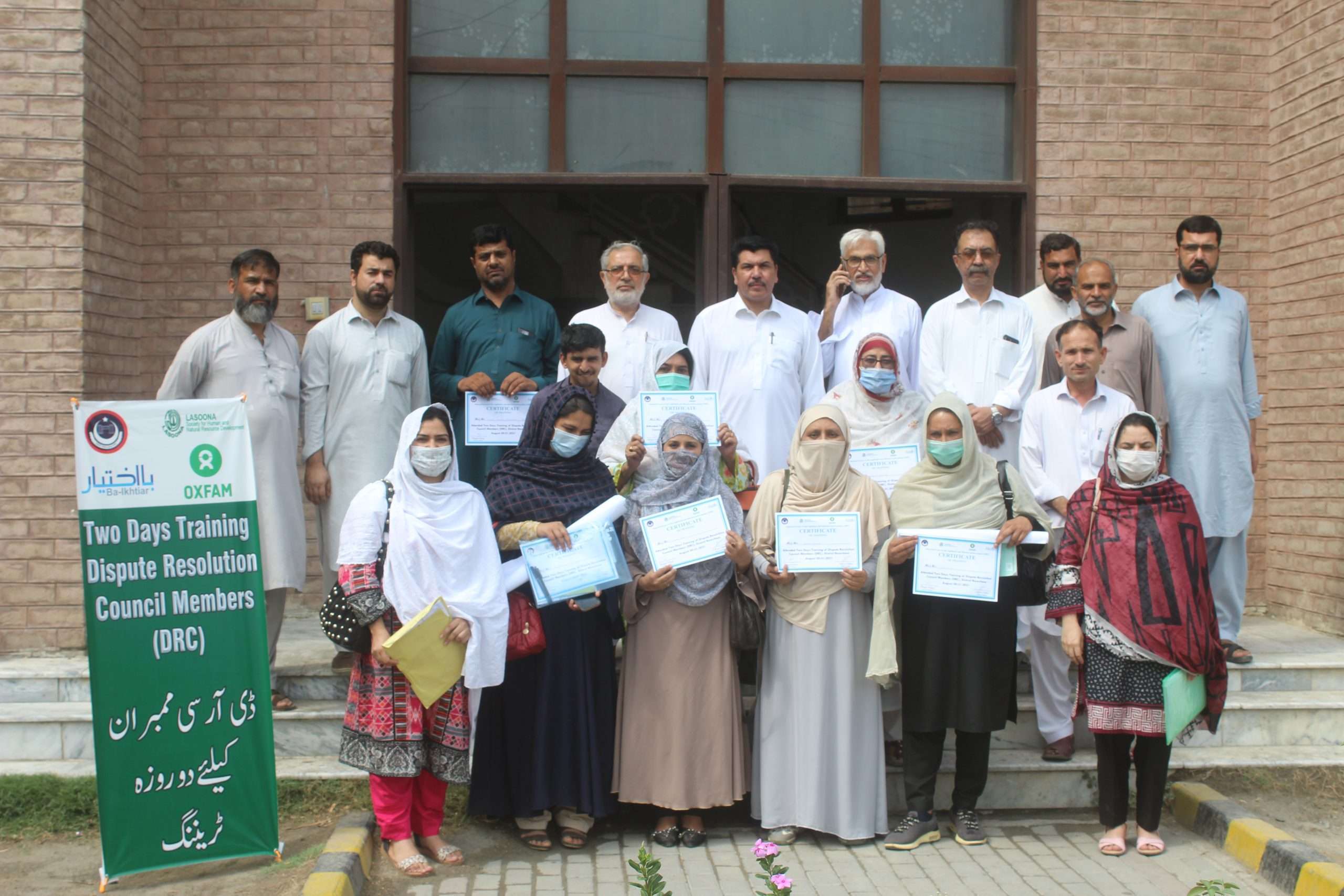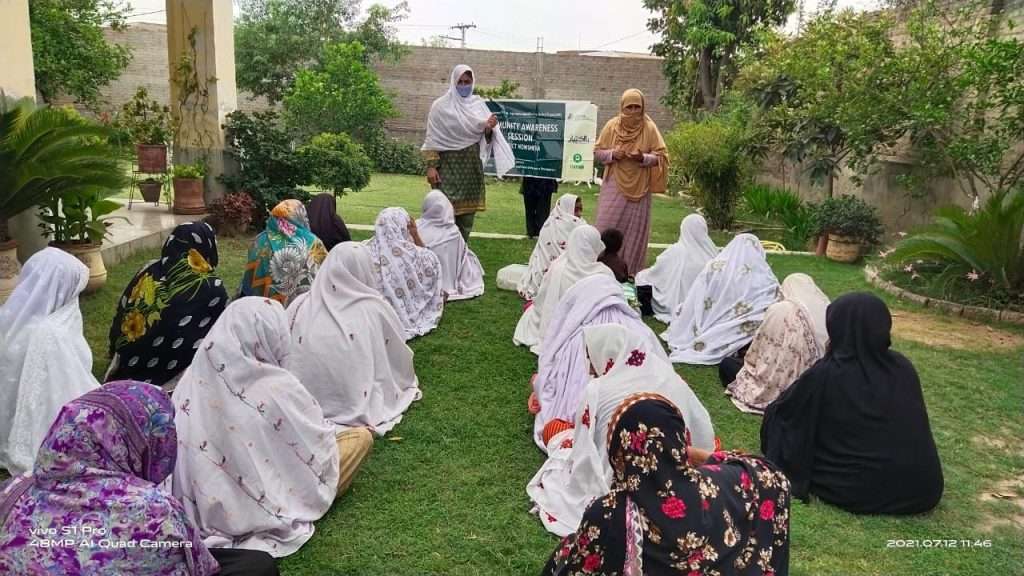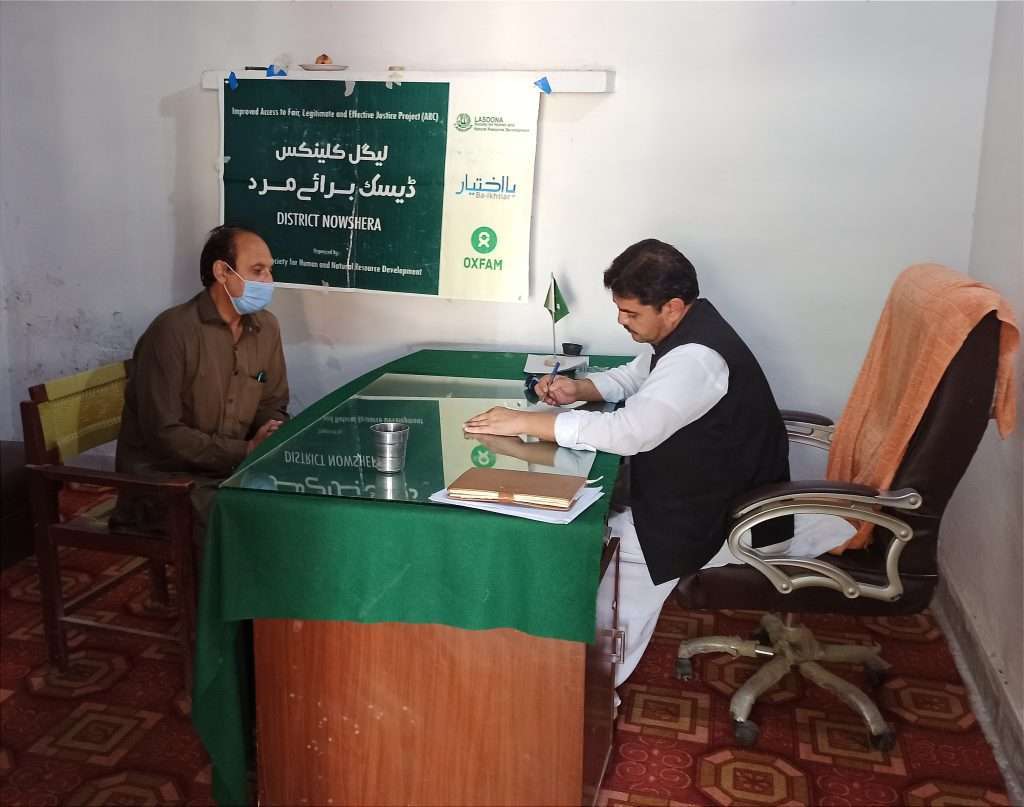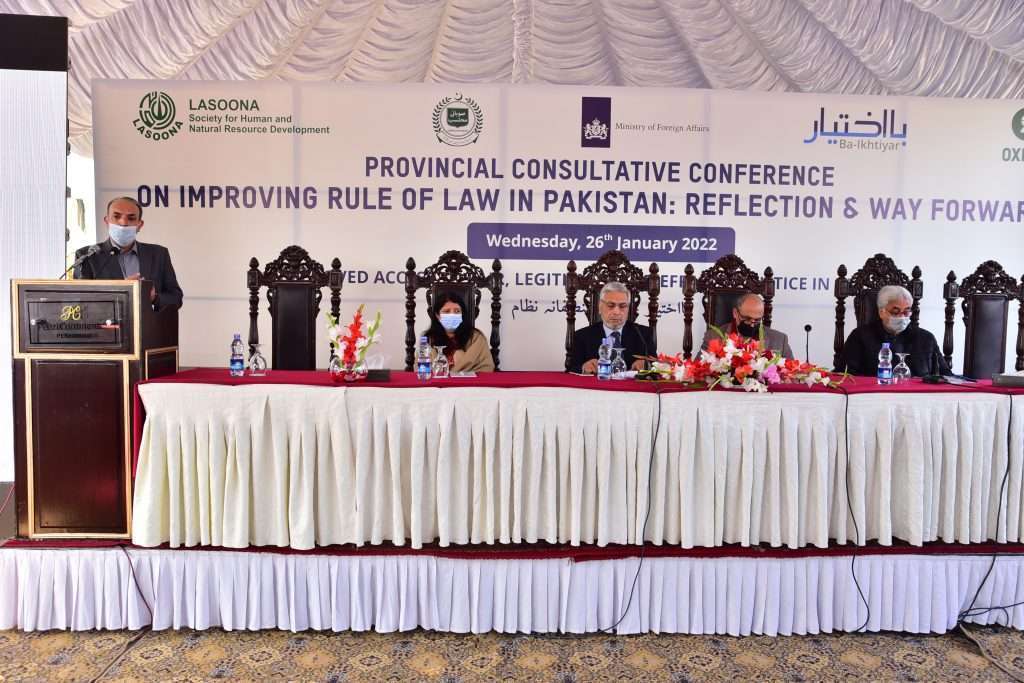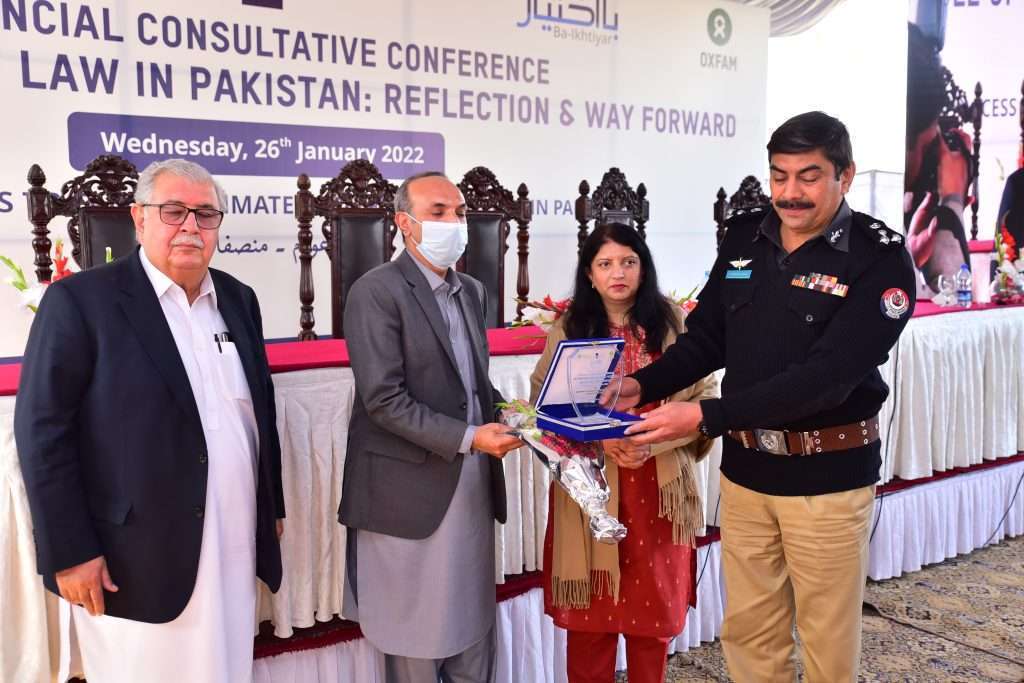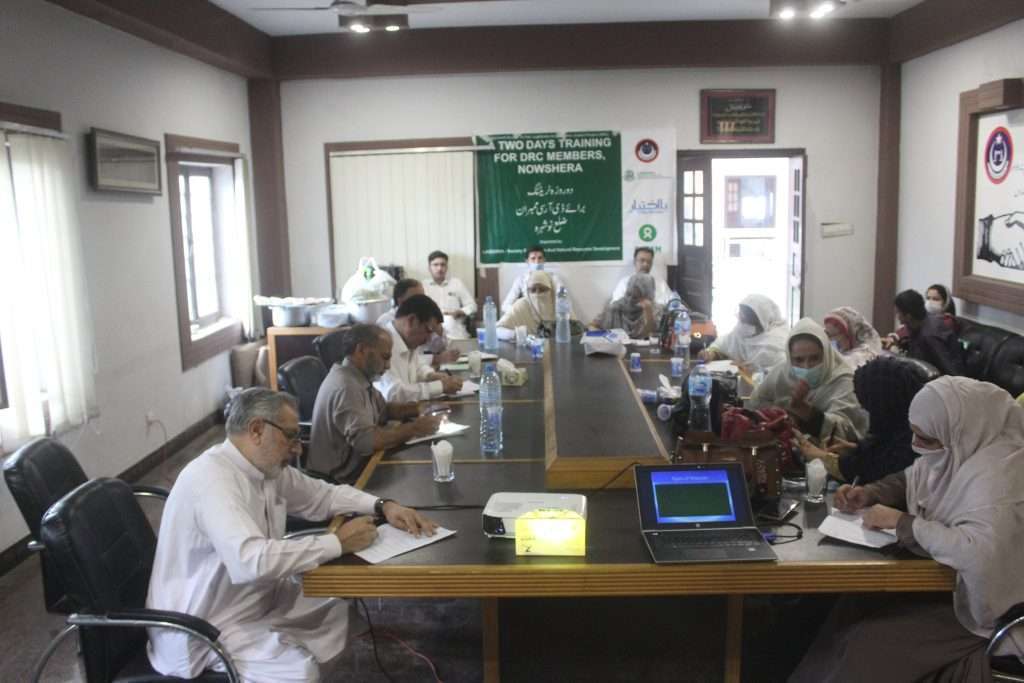- By Editorial Board
- October 1, 2020
- 0 Comments
Governance
October 2020- June 2022
Oxfam/Netherlnads Ministry of Foreign Affairs
District Nowshehra and Charsadda
The project objective is that women, youth and marginalised groups in Pakistan have more trust and confidence in a justice system that is legitimate, effective and accountable and responsive to their needs.
Project Background:
Women and men lack access to fair, effective and legitimate justice, which is a root cause of conflict and instability. This structural injustice is influenced by multiple factors including elite manipulation, ineffective governance and inequality, further exacerbated by growing Islamic extremism. More positive developments in Pakistan include growing demands for more transparent governance, increased access to justice and more clear and concise rules for informal justice mechanisms. An example is the Mediation, Conciliation and Arbitration Bill in November 2015, which argues that in view of the tremendous backlog facing Pakistani courts, other processes which prevent conflicts and disputes from exacerbating, should be encouraged in society, and that informal justice providers need formal training, encouragement, structure and to be held accountable.4
The project builds on opportunities to foster existing positive change processes by contributing to the legal empowerment of local communities, and by building the capacity of semi-formal justice mechanisms as a viable alternative for citizens seeking justice.
The Project would see a fully functioning legitimate, inclusive and accountable justice system with broad reach, that is responsive to the needs of women and men, boys and girls across Pakistan and within all communities, including the most vulnerable. We want to see more inclusive and legitimate justice systems gaining presence and trust within communities across the three selected provinces, and broader awareness of legal rights within the communities themselves
The project objective will contribute to the desired impact: a justice system that is more legitimate, inclusive, effective and accountable for all, especially for vulnerable groups in the project areas of Punjab, Sindh and Khyber-Pakhtunkhwa.
Sub-goal 2.1: Men and women from all social groups are aware of their basic rights and fundamental freedoms and have equal means to access formal and informal justice, including only sub-goal 2.1.a: Men and women (with the support of NGOs) speak out on their rights or increasingly mobilise community members to conduct relevant and inclusive advocacy.
Sub-goal 2.2: All justice institutions perform their tasks effectively, accountably and in better coordination, responding to the needs of citizens, including both sub-goal 2.2.a: Government adopts laws or policies in support of responsive, accountable and inclusive justice, and sub-goal 2.2.b: Formal and informal (inclusive) justice institutions and relevant authorities increasingly respond to claims from men and women in an accountable manner.
The project has three targeted outcomes:
1. Outcome 1: By the end of 2021, citizens, with a focus on women, youth and marginalised groups, are more aware of their rights, and understand the options they have to pursue their grievances through legal and non-violent means at district and provincial levels in project areas of Punjab, Sindh and KP. (Contributing to ARC result framework sub-goal 2.1.a.)
2. Outcome 2: By the end of 2021, the semi-formal justice sector has succeeded in strengthening linkages with the formal justice sector, and in exerting indirect pressure over the informal justice sector for more effective, accessible and legitimate justice within the project area for women, youth and marginalised groups. (Contributing to ARC result framework sub-goal 2.2.b.)
3. Outcome 3: By the end of 2021, increased political will has been created of provincial governments towards a responsive, accountable and inclusive justice system towards the needs of women, youth and marginalised groups under the legal framework (contributing to ARC result framework sub goal 2.2.a).
